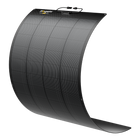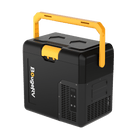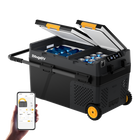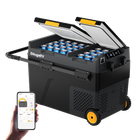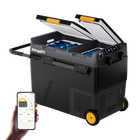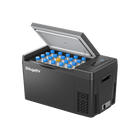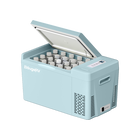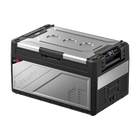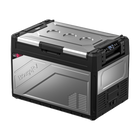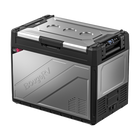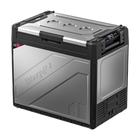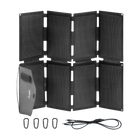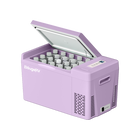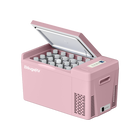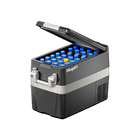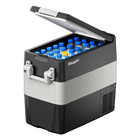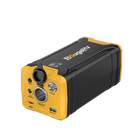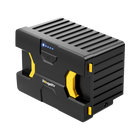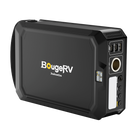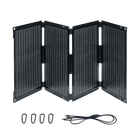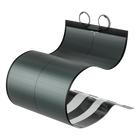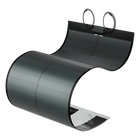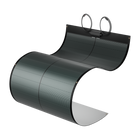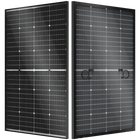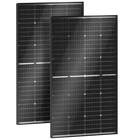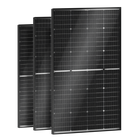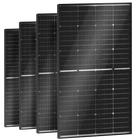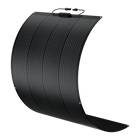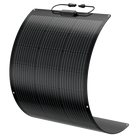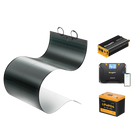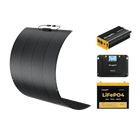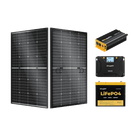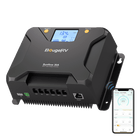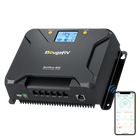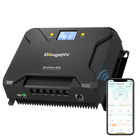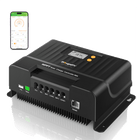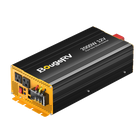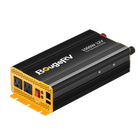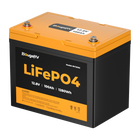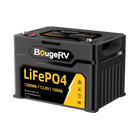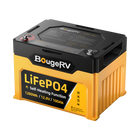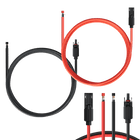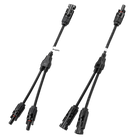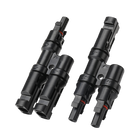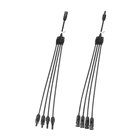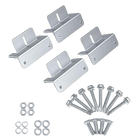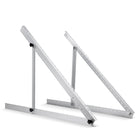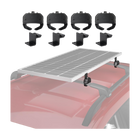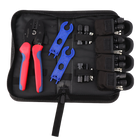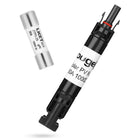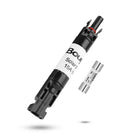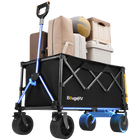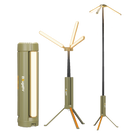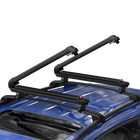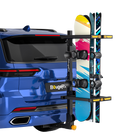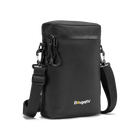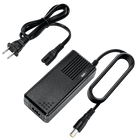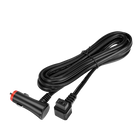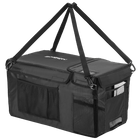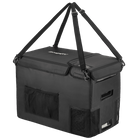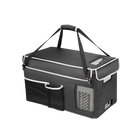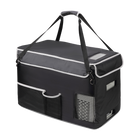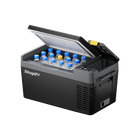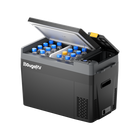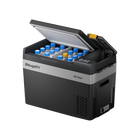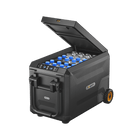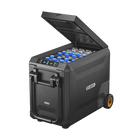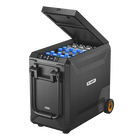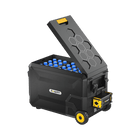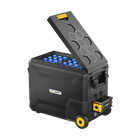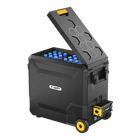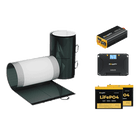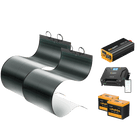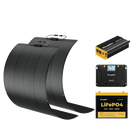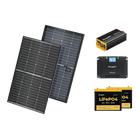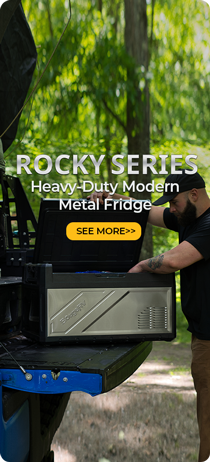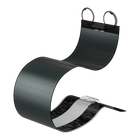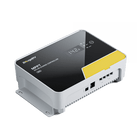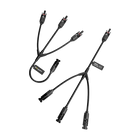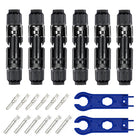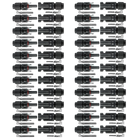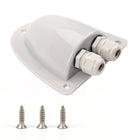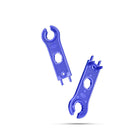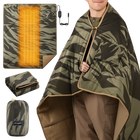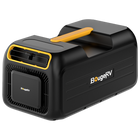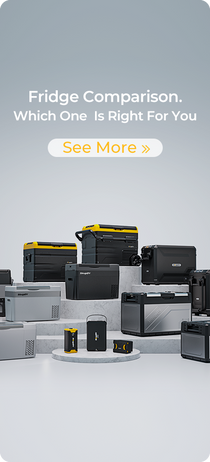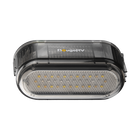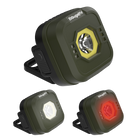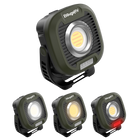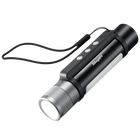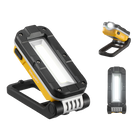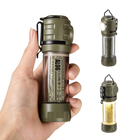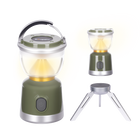CIGS Solar Panels for Camping

Taking a break in nature is a thrilling way to shake off the stresses of city life. And, whether you’re camping in a tent, motorhome, live in a van, or caravan, the right gears make camping an even better experience. For a camping geek, some camping gear like lights, an electric heating plate, an icemaker, a portable refrigerator, and unavoidable mobile phone chargers will give camping a rich experience.
To run all these devices seamlessly, a fully prepared power is needed. Having a portable solar panel along with a portable power bank is a perfect combination for camping. That allows you to travel without stopping to find a power source to recharge all appliances including the power bank. The hacks in this article will introduce you to the best solar panels for camping for your safety and comfort.
- Why Solar Panels?
- Solar panels in the Market
- CIGS Solar Panel Technology
- Why CIGS Panels are Best for Camping?
- Summary
- FAQs
Why Solar Panels?
Solar panels will give you power in a clean cool way. As we want to enjoy the calm and serene environment of the wilderness, carrying a solar panel is cater for camping.
Solar Panels in the Market
Most solar panels on the market use monocrystalline or polycrystalline silicon cells. These panels are suitable for everything from small rooftop solar systems to large utility-scale solar projects. However, these panels are rigid, with heavy metal frames and tempered glass. This makes the panels difficult to transport and handle, and not suitable for camping.
There is still a type of solar panel known as CIGS panels that is flexible, lightweight, and portable. And it’s ideal for carrying to the campsite and upgrading the camping experience.

Fig. 1: BougeRV 200W CIGS Flexible Solar Panels
CIGS Solar Panel Technology
CIGS means Copper Indium Gallium Selenide. CIGS is a versatile material. These cells are the most recent breakthrough in thin-film solar technology. They are suitable for use on metal foil, plastic, and glass. Flexible CIGS solar panels are not the same as traditional rigid crystalline panels in terms of technology. Sputtering, evaporation, electrochemical deposition, nanoparticle printing, and ion-beam deposition can all be used to create CIGS.
Flexible CIGS panels of BougeRV are made by one of the state-of-art processes having a very thin layer of semiconductor materials.
Why CIGS Panels are Best for Camping?
Less space and less weight
In camping, we worry about two qualities of stuff to carry with us. Space and weight. The lighter the material and more compact these are, much better to transport, carry and handle while camping. On the other hand, rigid crystalline solar panels have glass on top of it and aluminum frames. A 100Wp solar panel from BougeRV is only 1.7 kg (3.75 lbs). You can see who wins and who loses at a glance.
Crystalline panels need bulky packaging
The glass of crystalline panels makes the panel vulnerable to breakage while transporting and handling. And once the glass is broken in any situation, the panel will become unworkable. In fact, rigid crystalline solar panels are made for rooftop and large utility-scale power plant applications. In these cases, the panels are transported once from the factory to the site in specially made wooded palates and handled carefully. So, these panels are not meant for carrying from one place to another multiple times, unlike camping.
For a camper, safe and soft packaging is required to protect the rigid crystalline solar panels from shock or vibration during travel, which makes them bulkier and heavier. These are the very last things a camper desires
Flexibility
CIGS panels from BougeRV are 3600 Flexible unlike any other type of solar panels. That makes them uniquely fit for camping. You can easily roll a flexible BougeRV CIGS panel and carry it along with you during a camping trip.
Why CIGS solar panels are flexible but not crystalline solar panels? This is because of the reason that the construction of CIGS is very different from crystalline solar panels. Crystalline solar panels are made of silicon cells which are wafer-based. Those are sandwiched between glass, EVA, and back sheets. That makes them rigid. But in the case of CIGS, 4 elements, viz copper, indium, gallium, and selenide and burned onto a conductive surface with a laser. Since the active materials are in powder form, it offers more choices! These 4 elements when burned on a piece of “tin foil” and on top put a flexible transparent laminate, get a very thin and flexible solar module.

No breakable
There is no fear of panel breakage with the CIGS panel. That is a huge relief for a camper. Camping is inherently in the wilderness, rough terrain, and full of uncertainty. Therefore, you need rugged materials. Two things make CIGS panels unbreakable. First, this is not a wafer based unlike silicon cells of mono or polycrystalline solar panels. All the active materials of CIGS panels are in the form of powder-based. Therefore, there is very little risk of breakage during transportation and handling.
High stability of power generation
Because crystalline silicon cells exhibit light-induced attenuation in nature. That is, after prolonged exposure to sunlight, their power generation efficiency will gradually decrease. However, CIGS solar cells exhibit no light-induced attenuation and have high power generation stability. After a long period of time, crystalline silicon solar cells develop hot spots, resulting in low power generation, whereas CIGS solar cells can avoid this phenomenon by using an internal connection structure.
Summary
Solar panels offer several benefits when you are out camping:
- You are free to go anywhere without having to worry about how to power your appliances
- It allows you to travel to remote areas or off-grid locations also.
- You can save even more money by not using the power of the camping sites.
- Solar power is a renewable, clean source of electricity and can avoid polluting the environment.
CIGS solar panels are the latest innovation and the ideal power source for RV travel and camping for their flexibility and lightweight apart from other benefits of CIGS panels as mentioned above. The most portable and lightweight flexible solar panels on the market are BougeRV CIGS thin-film solar panels. A flexible CIGS panel from BougeRV is only weighs 1.7kg, or one-fifth of the weight of a rigid solar panel, which is one of the lightest in the market. Additionally, it is simple to roll and carry to any location you wish to go.
You can get your appliances charged anywhere on the journey. The BougeRV CIGS flexible solar panel is excellent for off-grid applications and perfect for camping. Use the CIGS panel for your RV, van, boat, truck, or trailer while traveling anywhere in this world – and get the most stable reliable, and a stable power source.
FAQs
How are solar panels used when camping?
You have two options: either mount the solar panels on the roof of your RV/car/tent or roll-up panels that you can place wherever the sun shines the brightest. The latter choice is best for campers because positioning is essential for the panels to operate at their highest levels of efficiency. Be careful when aligning them, check to see if they are ever shaded in any way, and regularly clean them of dust.
What can you power with solar panels?
Typically, small electronics like laptops, mobile phones, lights, and refrigerators, are powered by portable solar panels. Refrigerators use most of the electricity. LED lights are strongly advised as they consume less power. Additionally, it's critical to be aware that heating appliances can quickly deplete your battery due to their high-power consumption.
How much power can solar panels produce?
The amount of electricity that your panels can generate is determined by a number of factors. The first of these is that different sizes of solar panels have varying power outputs. The amount of sunlight that the panels receive also has a significant impact, with much of it determined by your geographical location and the time of year. Another factor to consider is temperature. Contrary to popular belief, solar panels perform best in cool climates with temperatures below 25 degrees Celsius. BougeRV can guide you in selecting a number of solar panels based on your requirements.






